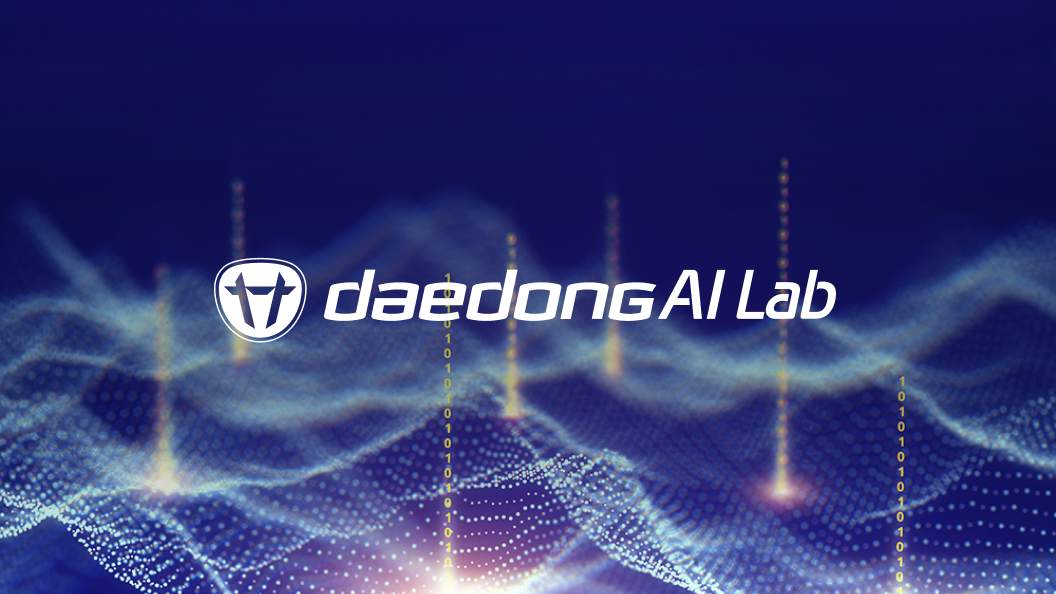Daedong opens AI robot S/W company “Daedong AI Lab”
“Emerging as a global leader robots with AI transformation”
Daedong opens AI robot S/W company “Daedong AI Lab”
- Daedong is looking to accelerate its future business by internalizing AI robot capabilities, developing AI models for agricultural/non-agricultural autonomous work robots
- Starting with agricultural/pest control robots (scheduled to launch in the second half of this year), Daedong robots will be equipped with AI technology... Going forward, AI will find its way into harvest/cleaning robots as well
- Goal is to develop robot products across various fields, including agriculture/non-agriculture, and establish a subscription-based service system for robots by 2028
- Na Yeong-jung, Head of the Daedong AI Platform Division, selected as CEO of Daedong AI Lab... AI expert Lee Beom-woo appointed as CTO
On May 27, Daedong (CEO: Won Yu-Hyun), a leader in future agtech, announced that it opened a new subsidiary specializing in AI robots. Daedong AI Lab is expected to help Daedong Group distribute its AI technology and develop new autonomous driving and robot AI systems.
Daedong has been aggressively promoting its smart agricultural machinery, farm, and mobility businesses driven by its vision as a leader in future agtech. In order to take its performance to the next level, the company is looking to commercialize its AI robot products powered by the Vision-Language-Action (VLA) model [1] developed using the latest in AI technology. To that end, Daedong explored possible options with research on related technologies over the past couple of years, and it believes Daedong AI Lab, as an AI research company, can support Daedong Group’s shift toward AI robots across all product lines.

Daedong Group has decided to concentrate its capabilities in robotics in the fields of agricultural robots and industrial robots for field work, where worldwide demand is growing rapidly - AI robots are considered productive and innovative alternatives that might help tackle the global labor shortage and climate anomalies. According to the International Federation of Robotics (IFR), the global robot market is expected to jump from USD 32.4 billion in 2022 to USD 43.3 billion in 2028. Daedong Group believes that it can emerge as a leader in the global agricultural robot market if it manages to successfully meld its AI robot S/W technology with its advantages in manufacturing agricultural and non-agricultural machinery as well as equipment accumulated over the past 77 years.
The company also wants to apply generative AI technologies like ChatGPT to all cutting-edge agricultural industries, including the connected services (agricultural telematics services) industry, open-field precision agriculture industry, facility smart farming & food tech, and green bio industries, to lead the way in AI and advanced unmanned agriculture in Korea.
Daedong AI Lab’s mission is to become a company that researches and develops AI robot S/W mounted on general-purpose robots. That is why the Lab is expected to work with Daedong, Daedong Mobility, and Daedong AgTech to develop AI systems, including a machine learning operating system, an autonomous driving control system for agricultural machinery and mobility (Autonomous Driving Control Unit; ADCU)[2], and an autonomous robot control system for agricultural and industrial robots (Autonomous Robot Control Unit; ARCU) [3], etc. Daedong will begin applying these systems to agricultural robots scheduled for launch in the second half of this year, and plans to roll out industrial robots for agricultural and outdoor work equipped with intelligence, automation, and unmanned functions powered by AI starting in 2025.
In the mid- to long-term, Daedong AI Lab will independently develop an AI Foundation Model, an NPU-based AI lightweighting for robots, and a cloud ML-Ops (machine learning operating system) as well. The new technology will help Daedong launch its on-device AI business using SaaS (Software as a Service) in earnest, and by 2028, the company plans to develop robots in various fields such as agriculture, construction, etc. and establish a robot subscription service (Robot as a Service, RaaS) to evolve as a S/W company specializing in group AI.
________________________________________
[1] What is a VLA AI model? A VLA AI model was applied to Tesla and Open AI’s humanoid robots, which both companies are demonstrating a lot this year. It is the key to implementing the functions available on agricultural machinery, industrial equipment, and mobility that autonomously perform tasks by recognizing and judging the surrounding environment and determining necessary tasks based on real-time communication with humans.
[2] A system that implements autonomous driving by integrating various functions such as sensor data processing, driving path planning, vehicle control, and safety management.
[3] A system that implements algorithms and plans, and also coordinates robot movements through various hardware and software such as sensors, actuators, control algorithms, and communication interfaces.
